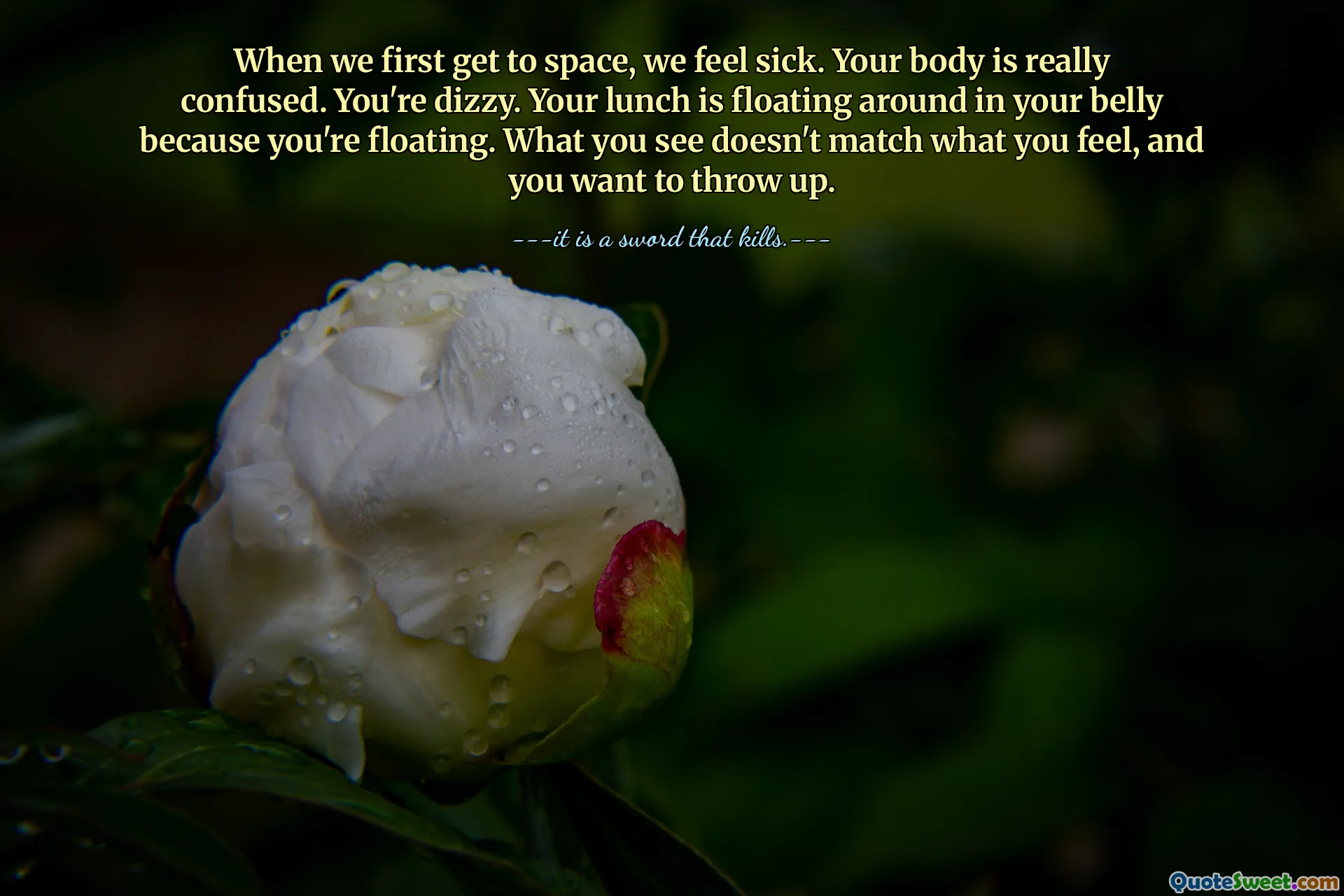
When we first get to space, we feel sick. Your body is really confused. You're dizzy. Your lunch is floating around in your belly because you're floating. What you see doesn't match what you feel, and you want to throw up.
The quote vividly captures the visceral experience of arriving in space and the profound dissonance between our accustomed perceptions and the new environment. It reveals the physical toll that microgravity imposes on the human body, illustrating how our bodily functions are finely tuned to Earth's gravity. When gravity is lost, signals sent by the vestibular system and internal organs clash with visual cues, leading to disorientation and nausea. This phenomenon, known as space adaptation syndrome, underscores how fragile and intricate our balance of sensory information is. Beyond the physical discomfort, the quote also hints at the psychological adjustments astronauts must make as they confront a reality that defies everyday intuition. This adjustment demands resilience and adaptability, qualities that space missions continually test. Moreover, it illustrates the broader human experience of stepping into the unknown—initially unsettling, yet ultimately a catalyst for growth, discovery, and innovation. Acknowledging these challenges fosters a deeper appreciation for space exploration, prompting improvements in preparation, spacecraft technology, and support systems to ease human adaptation. As we push further into the cosmos, understanding these fundamental human responses becomes crucial. It reminds us that beneath the technological marvels of space travel, it is the human body and mind that must evolve and adapt to unlock endless possibilities among the stars.











